Discover Trending In Ed
Trending In Ed

Trending In Ed
Author: Palmer Media
Subscribed: 5,563Played: 20,588Subscribe
Share
© Copyright Palmer Media 2024. All Rights Reserved.
Description
At the intersection of learning, media, and the future of work, join us each week as we sense and discover where the future of education is heading. Join host Mike Palmer, the Founder of Palmer Media, as he engages with thought leaders, pioneers, and entrepreneurs exploring the cutting edge of learning in these tumultuous times.
607 Episodes
Reverse
In this episode, we hear from Marshall Poe, founder and editor of the New Books Network, a podcasting network unlocking expertise and expanding access to learning. As a former Russian historian, Marshall recognized the gap between what experts know and what the public understands. He saw podcasting as a way to bridge this divide.
The New Books Network started as an experiment in 2007 and has since grown into a vast network with over 150 podcasts and a thousand hosts. Marshall views the network as an academic institution, akin to a university press, focused solely on public education. He takes pride in covering esoteric topics and preserving the voices of experts for posterity.
Poe envisions the network becoming a Wikipedia-like resource, where listeners can find smart people discussing any topic of interest. He encourages embracing audio's potential in higher education, with opportunities for AI-powered translation making expert knowledge more accessible.
Key takeaways:
• The New Books Network offers a unique auditory bookstore experience, connecting experts with the public.
• Marshall's commitment to building this "cathedral" of knowledge showcases the enduring power of the spoken word.
• Engaging with the cutting edge of disciplines is valuable, cautioning against oversimplification.
Don't miss this chance to gain insights from Marshall's unique perspective on leveraging the power of audio and podcasting to unlock expertise and expand access to learning.
Subscribe to Trending in Ed wherever you get your podcasts. Visit us at TrendinginEd.com for sharp takes on the intersection between learning and emerging media and podcasts.
Mike Palmer takes us on a whirlwind tour through the recent ASU+GSV Summit and AIR Show in San Diego. We hear the buzzing energy of the events as Mike shares his hot takes and insider scoops fresh off the ground.
The AI Revolution Show provided an intriguing glimpse into the new AI-powered products aiming to "supercharge" teachers' capabilities. Mike lauds the vision of positioning AI not as a replacement but as an empowering force operating "behind the teachers" to enhance their impact.
As Mike tours the exhibitor floor, we get the inside scoop on promising platforms like Kyron Learning, and Atypical AI - all striving to bolster teachers with smart content creation tools, personalized instruction, and data-driven insights.
The conference wasn't just about tech though - we hear tales of surprise mascot appearances earning the moniker "Clippy's Revenge." Mike ponders finding the right balance between injecting narrative whimsy while ensuring the human touch remains central.
Shifting to the main ASU+GSV event, we're treated to thought-provoking conversations around higher education's mounting challenges - from the looming "enrollment cliff" to concerns over cost and completion rates. Could partnerships harnessing AI provide a way to improve access and student success?
In a live recorded happy hour interview, we hear directly Paul Gollash from ETS and Dana Bryson from Study.com as they announce an exciting free AI-powered PRAXIS prep offering to support aspiring teachers, especially from underrepresented backgrounds.
Throughout the whirlwind episode, Mike's authentic voice shines through - blending expert analysis with relatable humor and insights gleaned from walking the streets of San Diego. We close on an upbeat note, with Mike feeling newly inspired to dig deeper into the future of education and work through his growing slate of podcasts including EdHeads and The Cusp with Paul Fain.
Subscribe wherever you get your podcasts. Visit us at TrendinginEd.com for more sharp takes on what's emerging in education.
This episode of Trending in Ed explores the explosive growth of AI in classrooms and workplaces. Host Mike Palmer interviews Tim Dasey, author of Wisdom Factories: AI, Games, and the Education of a Modern Worker, about the implications of these rapid changes.
We discuss how AI can support novice learners, the potential risks and biases within AI systems, and the need for critical thinking skills to successfully interact with AI. Dasey emphasizes the importance of adapting our approach to education with AI as a ubiquitous tool, rethinking how we learn, consume information, and develop traditional skills. We pay our respects to the work of Daniel Kahneman and dig into the nuanced differences between noise, bias, and bullshit and what this means to educators, learners, and all of us.
Key Takeaways
AI presents unique opportunities to support new learners, but may have less impact on experts.
Remain aware of potential biases within AI systems. It may not be attributable to ill intent it may be systemic noise and error.
Critical thinking and judgment are crucial for working effectively with AI in the future.
The ways we learn, read, write, and consume information will continue to evolve alongside AI.
Adopt an open-minded and flexible approach to AI as these technologies constantly change.
Timestamps
00:00 Introduction to Trending in Education and AI in Ed
00:36 The Wisdom and Challenges of AI in Education
02:08 AI's Impact on the Workplace and Education
05:15 Exploring AI's Role in Creativity and Problem Solving
15:49 The Complex Landscape of AI, Bias, and Human Judgment
23:31 Future Perspectives on AI and Learning
33:20 Concluding Thoughts on AI, Judgment, and Open-mindedness
In this special episode recorded live at SXSW EDU 2024, host Mike Palmer moderates a powerful panel on breaking down silos in education. Featuring multilingual learning consultant Dana Gastich-French, special education expert Dr. DeShanna Reed, and parent coach Punam Saxena, the conversation dives into the trifecta of community, culture, and collaboration. Learn how to be a link, while busting silos across the K12 ecosystem.
The panelists, who first met serendipitously at the prior year's SXSW EDU, explore the problems caused by working in isolation and offer solutions for bridging disparate worlds. They advocate creating networked improvement communities, fostering authentic connections through presence and effective communication, and prioritizing the crucial work of humanizing diverse stakeholders.
Punam stresses meeting parents where they are by providing vocabulary and support. DeShanna shares powerful stories of cultivating trust through home visits and communicating in families' native languages. Dana suggests stakeholder groups, documenting processes, empathy interviews to shape school culture, and valuing the "unsexy" moments that truly build community.
With vulnerability, passion and decades of frontline experience, the panelists make a clarion call for a paradigm shift - moving away from inefficient siloing towards meaningful collaboration that embraces the strengths of students, teachers, parents and communities. An inspiring listen for any educator striving to create equitable, inclusive environments for all.
Subscribe to Trending in Education wherever you get your podcasts. Visit us at TrendinginEd.com for more sharp takes on what’s emerging in the learning universe.
Mike Palmer sits down with Spencer Russell, the founder and CEO of Toddlers CAN Read while at SXSW EDU, just after Spencer delivered a keynote there. Spencer shares his journey from being a kindergarten and first grade teacher to taking the leap and starting his own business focused on helping parents teach their toddlers to read. We explore his motivational, step-by-step methodology that breaks down the process into simple, actionable steps that engage both parents and children. Here's the link to the video referenced in the episode.
Spencer emphasizes the importance of giving clear directions to kids instead of asking questions or making statements. He stresses using the right tone, energy and eye contact to keep kids focused during lessons. We explore myth-busting around reading instruction and Spencer advocates for an approach centered on phonics and phonemic awareness. Throughout the approach motivation and psychology are deeply integrated into the literacy curriculum.
Listen in to get a window into Spencer's disciplined lifestyle behind the scenes - from meditation to coaching to optimizing sleep and diet. He talks about manifesting his goal of being a keynote speaker and putting in the hard work to prepare mentally and physically. In his parting words, Spencer encourages listeners to take that first step towards their goals instead of just talking about it.
Key Takeaways:
Use clear directions, not questions or statements, when instructing kids
Start simple with phonics basics before layering on other reading skills
Prioritize consistency and motivating kids over frontloading everything
Manifesting goals requires dedicated preparation across all aspects of life
Don't miss this inspirational look at breaking down reading for toddlers and living with intention to achieve your dreams.
Subscribe to Trending in Ed wherever you listen to pods. Visit us at TrendinginEd.com for more.
In a lively and thought-provoking session at SXSW EDU 2024, Mike Palmer, host of the Trending in Education podcast, and a panel of experts delve into the "Sweet 16" of learning trends for the year. The discussion covered a wide range of topics, from hyper-personalized learning and the role of AI in education to the importance of mental models and the responsibility of being an "accomplice" in driving positive change.
The panelists, including Melissa Griffith from Kaplan, Beth Rudden from BAST AI, and Dr. Robin Naughton from Queens College, brought unique perspectives and insights to the table. We explore the potential and challenges of AI, highlighting the need for critical thinking, ethical considerations, and a human-centered approach to technology.
One of the key themes that emerged was the importance of empowering learners and educators to engage with AI responsibly and effectively. The panelists emphasized the need for transparency, explainability, and a deep understanding of the models and data that underlie these technologies. We also discussed the role of mental models, biomimicry, and ancestral intelligence in shaping our interactions with AI and fostering a more inclusive and equitable learning environment.
As the session draws to a close, we encourage the audience to stay engaged and informed about the rapidly evolving landscape of learning trends. This officially kicks off our tournament throughout March, allowing listeners to vote on their favorite trends. Visit us at TrendinginEd.com and follow Mike on LinkedIn to track the tournament and stay up-to-date with the latest discussions and insights.
In this thought-provoking episode, Mike Palmer welcomes education journalist Laura Pappano to discuss her new book School Moms: Parent Activism, Partisan Politics and the Battle for Public Education. Laura shares her experiences attending Moms for Liberty summits, witnessing alarming rhetoric portraying public schools as indoctrination centers. She also touches on the work she is doing at the New Haven Student Journalism.
While marketed as a grassroots parent movement, we learn Moms for Liberty is well-funded by far-right groups aiming to shift the political balance of local school boards. Laura recounts the transformation from 2022 to 2023 summits, with protestors surrounding the latter event in Philadelphia amid heightened tensions.
The conversation highlights how extremist tactics like book bans and policies stripping educator authority threaten public education's democratic foundations. We explore the concerning nationalization of these trends, with local school boards becoming partisan battlegrounds disconnected from community needs.
However, Laura reminds us public schools remain vital unifying spaces for children's growth and identity development. While imperfect, the system provides an essential community fabric to nurture, not destroy. By coming together, valuing expertise, and rejecting disinformation, we can preserve quality public education. The stakes are high, but our potential for positive impact as engaged citizens remains.
Subscribe to Trending in Ed wherever you get your podcasts. Visit us at TrendinginEd.com for more sharp takes on the future of education.
Edward Hanapole leads the media and entertainment practice at Alvarez and Marsal. He brings a unique perspective to his conversation with host Mike Palmer, having worked across major media sectors including education, publishing, and broadcast.
We discuss how media companies are adapting to direct-to-consumer models in a post-pandemic world. Edward notes they are having an "existential moment" realizing they must operate more like technology companies. He sees parallels in education's shift to digital experiences. Students now expect education delivered differently, more like media and entertainment content.
Hanapole believes focusing on the consumer is key for both media and education. Investments target enhancing the user experience while ensuring educational rigor. We explore how artificial intelligence can aid creation of lessons and personalization. However, entertainment value shouldn't overwhelm learning objectives and outcomes. Stealth learning that sneaks in education while engaging users has potential.
On human-AI collaboration, Edward discusses an AI advisor Kaplan is developing to replicate personalized guidance at scale. The system engages users with an intent, while continuously learning from interactions. Overall, he stresses not fearing new technologies. By embracing them, we gain the learning needed to innovate thoughtfully. Measuring outcomes ensures human advancement remains the objective.
Subscribe to Trending in Education wherever you get your podcasts. Visit us at TrendinginEd.com for more sharp takes on what’s emerging in the learning universe.
Bruce Dahlgren, CEO of Anthology, joins host Mike Palmer for an edtech discussion informed by Bruce's extensive IT background and higher ed governance along with his vision for the growth of the platform.
With over four decades across enterprise software, data infrastructure, fintech (financial technology), and cybersecurity, Bruce brings valuable outside perspective to leading this major edtech player. He shares unique insights on leveraging AI, analytics, and integrated platforms to enable personalized, seamless learning. Bruce discusses Anthology's ecosystem spanning the Blackboard LMS (learning management system), ERP (enterprise resource planning), CRM (customer relationship management), and more.
As a technology expert and voice in higher ed governance, Bruce makes the case that AI and analytics can create a more holistic student journey from recruitment to career outcomes and alumni engagement. Key themes include using Anthology's AI Design Assistant for quickly building courses, its ethical AI framework, and the critical role of security in edtech. We also reference this white paper.
Bruce argues his multifaceted background helps connect enterprise tech innovation with higher ed trends. He provides perspective on using edtech to drive student engagement, preparedness, and institutional success. Don't miss it!
Subscribe to Trending in Education wherever you get your podcasts. Visit us at TrendinginEd.com for more sharp takes on what’s emerging in the learning universe.
Dr. John Harnisher, who leads the education practice at DataKind joins host Mike Palmer in a conversation about how data science can drive social impact in education. Having known each other for over 10 years, we have an engaging conversation reflecting on John's journey in the learning field.
John gives us an inside look at DataKind's mission of bringing data science and AI capabilities to social impact organizations. He shares a case study from their work with John Jay College in New York, where they built machine learning models to predict which students were at risk of not graduating. By providing this data to academic advisors, John Jay was able to improve graduation rates by 30%.
We discuss the importance of keeping humans involved when implementing AI, rather than just optimizing for the technology. We also cover topics including trust in data, the hype cycle around AI, and how to measure impact. John emphasizes that we should focus AI on core problems facing education organizations, not just chase the latest "new hotness."
Don't miss this chance to learn more about how data science and AI can make a social impact in education and beyond.
Subscribe to Trending in Education wherever you get your podcasts. Visit us at TrendinginEd.com for more sharp takes on what’s emerging in the learning universe.
In this episode, host Michael Palmer welcomes back Dr. Bror Saxberg, Founder of LearningForge, to continue their exploration of learning and its implications for the future. We dig into core concepts like working memory vs long-term memory, deliberate practice and the 10,000 hour rule, and what the latest research reveals about differences (and similarities) in learning rates. Dr. Saxberg emphasizes the brain's lifelong neuroplasticity and potential for acquiring new skills and knowledge.
The conversation then shifts to expertise more broadly, including how cognitive scientists study it and the decline in professional skill "half-lives." Bror and Michael discuss organizational training, creativity from combinatorial expertise, and the unique human capacity for shared meaning. We explore how improving learning environments and motivation, per a recent study, can help accelerate expertise development across all levels of learners. The episode wraps with optimism about human potential to gain new competencies and value, aided by learning science insights and emerging technology.
Subscribe to Trending in Education wherever you get your podcasts. Visit us at TrendinginEd.com for more sharp takes on learning, media, and the future of work.
In this week's episode of Trending in Education, Ryan Craig, author of the new book Apprentice Nation: How the "Earn and Learn" Alternative to Higher Education Will Create a Stronger and Fairer America, joins host Mike Palmer to dive into how "earn and learn" models like apprenticeships can bridge the growing experience gap facing young workers seeking their first good job.
Craig makes a compelling case for why apprenticeships should be a mainstream option for high school graduates, not just a pathway for trade occupations. He argues apprenticeships can provide the work experience and skills training needed to prepare young people for high-demand roles in fields like cybersecurity, healthcare, and software development while presenting a less risky alternative to the loan-based approach that predominates in higher education.
The discussion reveals how apprenticeships have languished in the US compared to countries like Switzerland and Germany. Craig advocates passionately for greater government investment and support for intermediaries that can set up and run apprenticeship programs at scale. Without this kind of backing, companies lack incentives and capacity to provide these earn-and-learn opportunities. The lively exchange offers thought-provoking ideas around closing both the skills gap and the growing "experience gap" faced by college graduates who aren't graduating ready to work. Craig warns that employers are increasingly expecting entry-level hires to already have real work experience. Apprenticeships and other earn-and-learn models can help bridge this divide.
If you care about creating new pathways to economic mobility and opportunity for young Americans in the digital age, you won't want to miss this forward-thinking discussion. Tune in to hear Craig's compelling vision for how an "Apprentice Nation" could transform education and workforce training.
Subscribe to Trending in Education wherever you get your podcasts. Visit us at TrendinginEd.com for more sharp takes on the future of education.
Get pumped! The Trending in Education crew is heading to SXSW EDU 2024 to kick off the podcast stage in style. Mike Palmer will be joined by his dream team of past guests - his wife, information scientist Dr. Robin Naughton, enterprise strategy expert Melissa Griffith, and AI authority Beth Rudden.
This all-star panel will break down the top trends for 2024 and launch their annual March Madness brackets, where you get to vote on the #1 trend of the year. Will AI and ethics lead the pack? Or will an underdog like the creator economy take the crown?
Get the inside scoop on each panelist and a preview of the hot topics they'll be bringing to the stage. You'll hear Mike and Robin connect as parents and educators navigating our changing times. Melissa will draw on her expertise across higher ed and workforce development to spotlight key shifts. And Beth will ground the AI hype in human needs and social science highlighting her work with Bast AI and her book AI For the Rest of Us.
No matter what brings you to SXSW EDU 2024, make sure to add the Trending in Education session to your schedule. This high-energy panel of diverse perspectives will get you thinking and connect you to a community of forward-looking educators. Meet us at the convention center on March 4th as we set the tone for an amazing week of learning and engagement!
Subscribe to Trending in Ed wherever you get your podcasts. Visit us at TrendinginEd.com for more sharp takes on the future of learning.
In this episode of Trending in Education, we explore how to keep students, teachers, and parents connected in the learning process. Our guest is Matt Given, CEO of Seesaw, an edtech platform focused on early childhood education. We refer to this white paper from Seesaw during the conversation.
Given explains how Seesaw aims to capture the tactile, joyful moments of real-world learning through photos, videos, and voice recordings. This multimedia capturing allows teachers to share authentic examples of student progress across each child's learning network - not just test scores, but videos of them reading aloud, showing marked improvement from the beginning to the end of the year. Given notes this is especially powerful for parents, even those overseas, to see tangible evidence of their children's growth.
Throughout the discussion, we explore principles for quality K-6 education laid out in Seesaw's white paper. Given stresses that technology should facilitate, not replace, human connections. Edtech tools like AI-enabled translation can help bridge communication gaps between teachers and non-English-speaking parents. But the human relationships remain essential, especially for young students still developing their learner identity. Given emphasizes designing tools that remove barriers to inclusion rather than forcing users into a particular mold. The takeaway? For educational technology to succeed, it should bring students, teachers, and parents closer together in the learning loop - not push human stakeholders out.
Subscribe to Trending in Education wherever you get your podcasts. Visit us at TrendinginEd.com for more sharp takes on what’s emerging in the learning universe.
In this episode of Trending in Education, we talk with Brian Rosenberg, author of the new book Whatever It Is, I'm Against It: Resistance to Change in Higher Education. Rosenberg is the President Emeritus of Macalester College and a Visiting Professor at Harvard's Graduate School of Education.
We discuss the paradox of why higher education, which often speaks of transformation, is actually highly resistant to change. Rosenberg outlines the stark economic realities facing many colleges today, with unsustainably high tuition discount rates and declining demographics. He argues we've reached an untenable situation of economic unsustainability and unacceptable outcomes, especially for underrepresented students.
Powerful campus stakeholders like administrators and tenured faculty have little motivation to push for dramatic reforms that could threaten their positions. Meanwhile, marginalized groups like non-tenure track faculty and students lack power, despite having the greatest desire for change. Rosenberg calls for small experiments and building innovation centers as "green fields" within existing institutions.
We explore innovative models like the African Leadership University, focused on empowering self-directed learners. Rosenberg believes solutions will emerge from scrappy startups and developing world contexts, not elite U.S. institutions. He urges those who care about higher education to take on the challenge of doing the "hard things" needed to build a more equitable and financially sustainable future.
Subscribe to Trending in Education wherever you get your podcasts. Visit us at TrendinginEd.com for more sharp takes on what’s emerging in the learning universe.
On this week's episode of Trending in Education, we chat with Nicolle Merrill about conversation design, AI literacy, and preparing for the impacts of artificial intelligence in the workplace.
Nicolle is the founder of The Boring AI Company, where she teaches organizations about AI. But Nicolle also has hands-on experience designing conversational AI, having worked on chatbots and voice assistants prior to the release of chatGPT and other large language models.
We discuss how Nicolle has had to evolve her own career as these new AI capabilities have emerged. The hype around "prompt engineering" as a new lucrative career, she notes, doesn't match reality. Prompt engineering is an important skill but not a standalone job paying hundreds of thousands per year.
A big focus of our conversation is around AI literacy and skills needed to work with AI. Nicolle outlines a framework for understanding how AI works, how it's applied, and what impact it has. Critical thinking and communication skills are key. We have to get comfortable asking "dumb" questions, being vulnerable, and talking to technologists to further our literacy.
Nicolle shares how she's building chatbots to actually facilitate this learning, creating "AI helpers" that workshop participants can query to learn AI concepts in an accessible way. We reflect on the need for a maker's mindset in using these tools while also being aware of potential dangers like misinformation.
If you're interested in learning more, visit Nicolle's site SoBoringAI.com for AI literacy courses and resources. The future of work is here, and we all need to skill up on AI.
Subscribe to Trending in Education wherever you get your podcasts. Visit us at TrendinginEd.com for more sharp takes on what’s emerging in the learning universe.
How can higher education evolve to better prepare graduates for the rapidly transforming world of work? On this episode, host Mike Palmer talks with Brandon Busteed, the newly appointed CEO of BrandEd, about the future of colleges and universities in bridging the gaps between education and career readiness.
They discuss today's challenges facing higher ed, including rising costs, student debt, doubts about graduate preparedness, and political polarization. Brandon explains how BrandEd's model focuses on more relevant, experiential education through partnerships with iconic brands like Sotheby's, New York Times, and Condé Nast. He shares how this approach can provide uniquely transformative learning focused on work-integrated opportunities.
Exploring the future of work disruption, Brandon stresses the importance of constant learning and upskilling. He talks about the need for more long-term "cathedral building" in education focused on fundamentals, despite rapid change, and the blurring of distinctions between learning and work environments.
Tune in for an insightful discussion on how higher education can evolve to better connect students to rapidly changing workplace needs and support lifelong skill development.
In this episode of Trending in Education, we speak with Michael Strawser, an associate professor of communication at the University of Central Florida. He provides insights and practical tips on delivering effective instructional communication.
Strawser explains how the field of instructional communication examines how communication impacts learning in all instructional contexts. He notes that clear communication is key for instructing audiences amidst our cluttered media landscape. Strawser aims to diminish student emails by proactively addressing their questions through clear assignment instructions and weekly overview videos.
Building rapport and relationships with students can help remove barriers to learning, Strawser says. He suggests simple rapport-building techniques like using student names in emails and following up on personal anecdotes they share. Strawser also cautions against assumptions that younger generations are inherently tech-savvy. He cites a survey where managers felt Gen Z lacked technical literacy, expecting social media fluency to translate to workplace software.
Strawser believes we need increased focus on tech, media and AI literacy so audiences can navigate information sources wisely. He advocates adaptability regarding new technologies, urging educators to avoid simply adopting gadgets without tying them to good pedagogy. As instructors, Strawser concludes we should remember teaching is only part of our identity. Finding balance helps us approach instruction with humanity, clarity and care for the whole student.
In this special episode, host Mike Palmer is interviewed by Dr. Whitney Green from Kiddom about the use of AI and ChatGPT in the classroom. We discuss how AI and generative technologies like ChatGPT came about through advancements in computing power and neural networks. While some educators have concerns about introducing these technologies too quickly, Mike and Whitney explore the potential benefits of using AI to personalize learning and support teachers.
We talk about establishing parameters and getting parental consent to use ChatGPT responsibly in schools. Mike suggests teachers try out the technology personally first to understand it. He says AI could help teachers by automating repetitive tasks so they can focus more on coaching and motivating students. Whitney emphasizes becoming knowledgeable about AI tools to use them effectively for students' learning needs.
Overall, Mike and Whitney encourage being open-minded, finding trusted resources, and connecting with other educators to thoughtfully adopt AI. We are hopeful about AI's potential to empower teachers and unlock new levels of personalized learning if implemented carefully. The key is educating all stakeholders involved and putting student learning at the center.
Subscribe to Trending in Education wherever you get your podcasts. Visit us at TrendinginEd.com for more sharp takes on the future of education.
In this week's episode of Trending in Education, host Mike Palmer has an enlightening conversation with learning science expert Bror Saxberg. As founder of Learning Forge, Saxberg knows a tremendous amount about how learning happens in the brain, and he shares his wisdom in this episode by applying that knowledge to parenting.
Resources cited in this episode:
The Brain Story from the Palix Foundation: https://www.albertafamilywellness.org/what-we-know/the-brain-story/
Harvard Center for the Developing Brain: https://developingchild.harvard.edu/
Dick Clark and Bror Saxberg on Motivation: https://riverapublications.com/article/engineering-motivation-using-the-belief-expectancy-control-framework
Episode Summary: Right from the start, Bror stresses the importance of "serve and return" interactions with babies and toddlers. By responding to a child's vocalizations, gestures, and interests with talk, touch and emotion, parents help build key communication circuitry in their children's brains. Language exposure in those early years pays dividends down the road.
Saxberg also cautions about the damages of prolonged stress, known to flood young brains with cortisol and inhibit learning. Creating a peaceful, low-stress home environment allows a child's brain to thrive.
When kids reach school-age, it's essential to leverage their working memory and long-term memory. Repeated practice of foundational skills like reading, writing and math moves them into long-term memory, freeing up working memory for higher-order thinking.
The teenage years bring another window of opportunity, as adolescent brains are primed for social motivation and abstract thinking. Engaging teens in meaningful dialogue about real-world issues builds critical thinking skills that will serve them for life.
On the topic of motivation, Saxberg outlines four key barriers that parents and teachers should look to address: not seeing value in an activity, feeling incompetent, blaming external factors, and wrestling with difficult emotions. The solutions involve building relevance, confidence, problem-solving skills and emotional support.
Finally, Saxberg champions open communication between parents and teachers to align approaches for motivation, skill-building and meeting social-emotional needs. Continuity between home and school learning accelerates student success.
This information just scratches the surface of the practical parenting guidance Saxberg shares. Don't miss this insightful episode to pick up more techniques for parent-child interactions that optimize learning throughout our lives.
Subscribe to Trending in Education wherever you get your podcasts. Visit us at TrendinginEd.com for more sharp takes on what’s emerging in the learning universe.


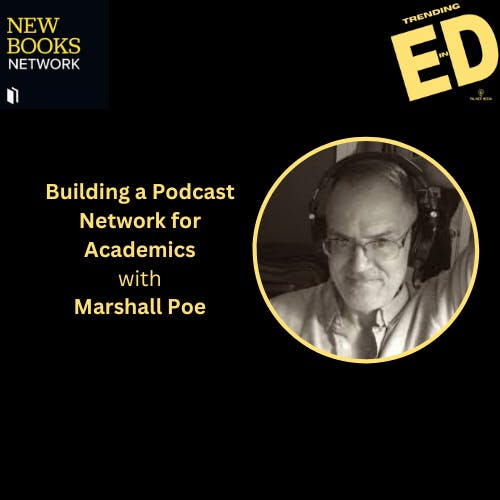
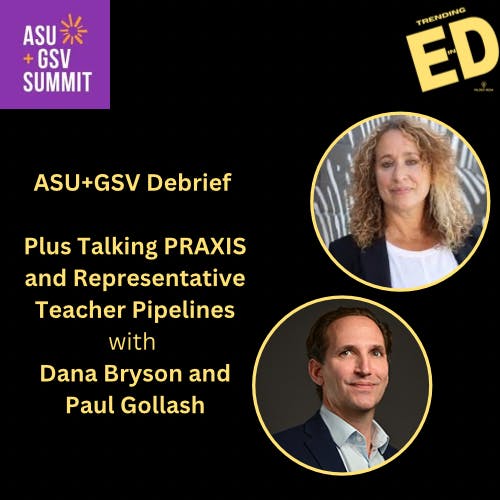
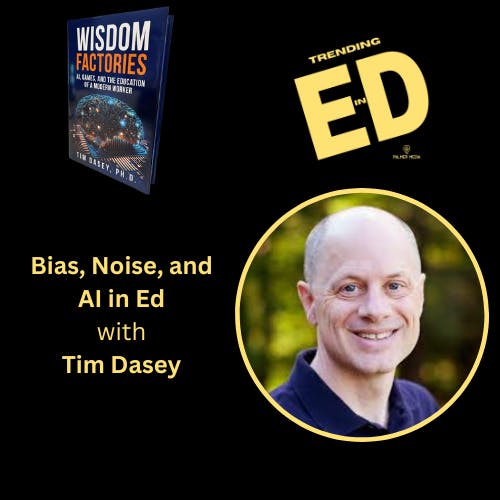
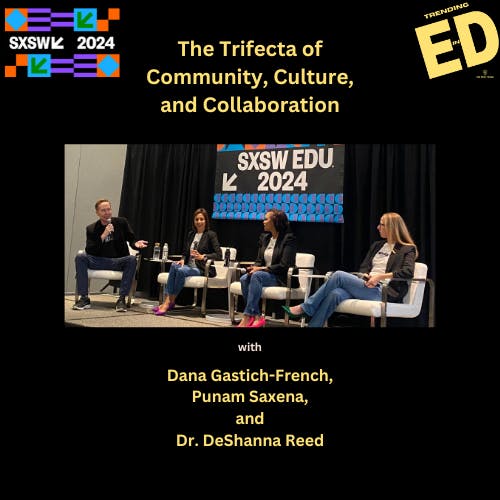
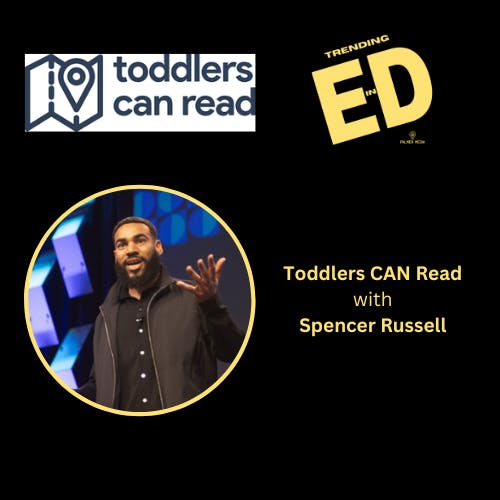

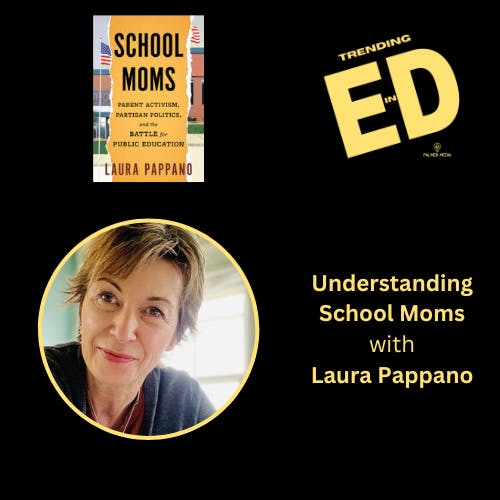
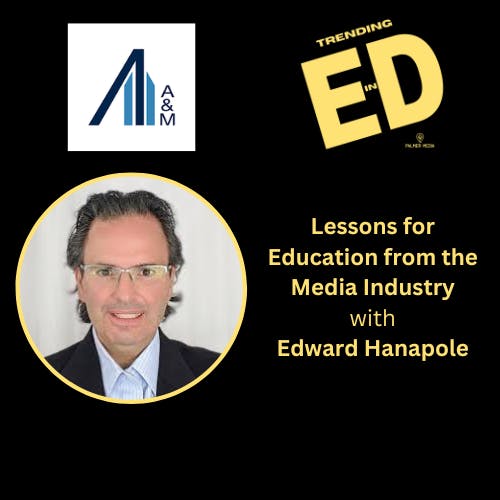
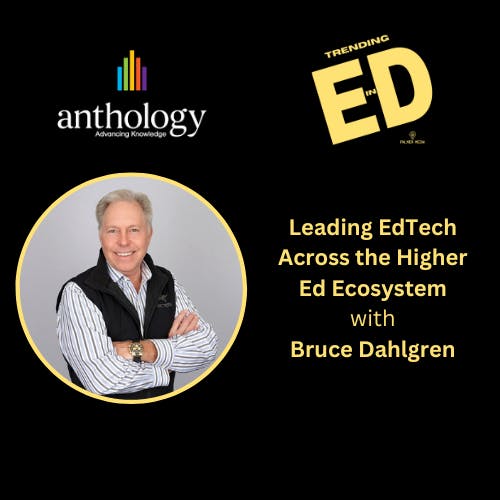
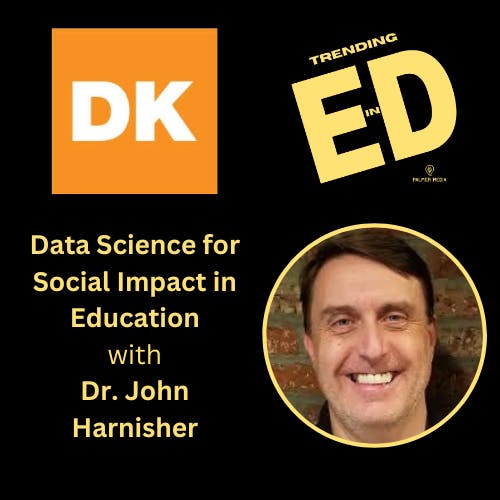
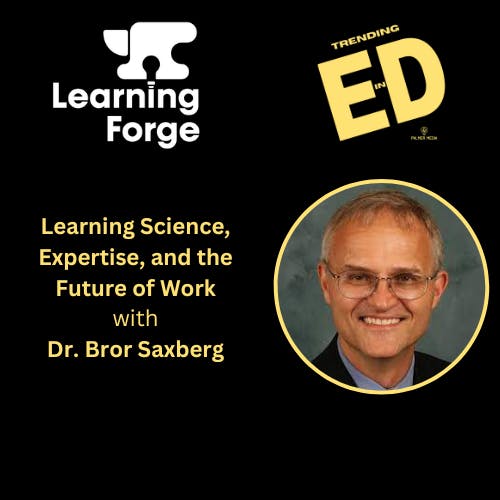
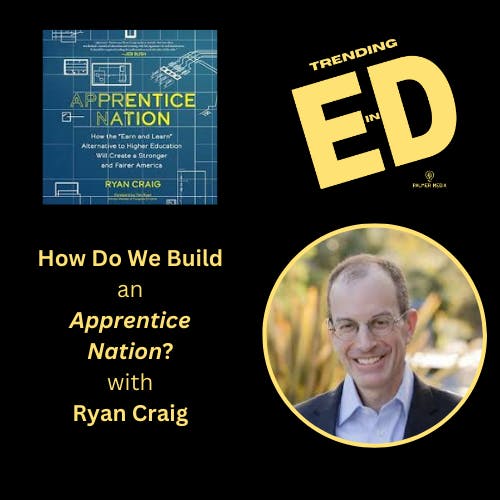
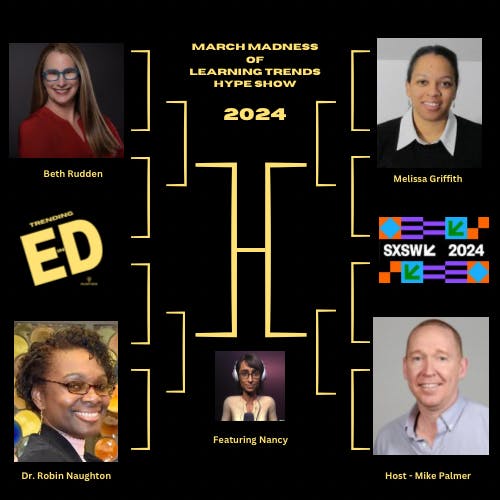
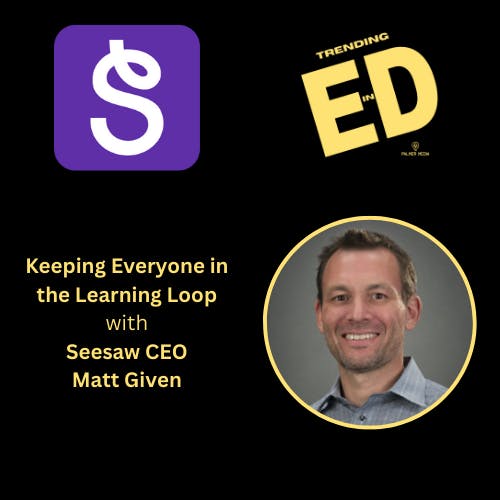

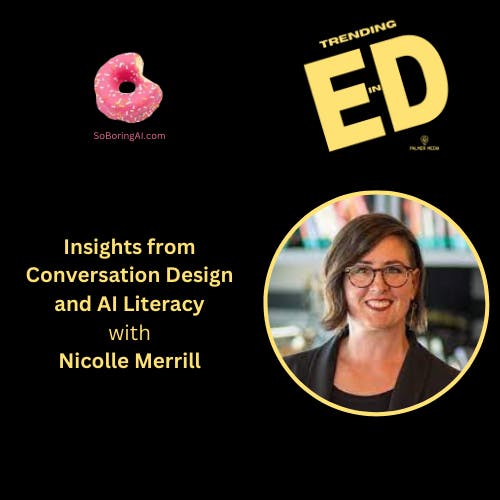

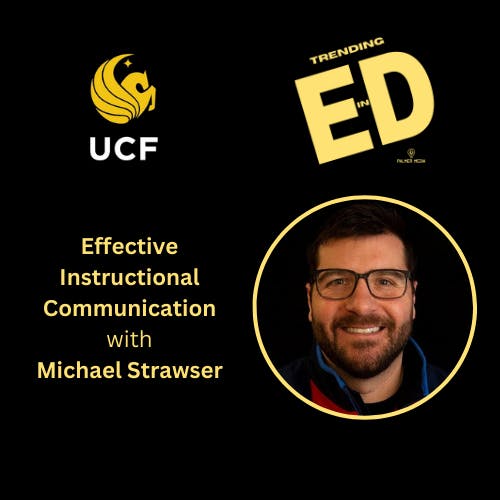

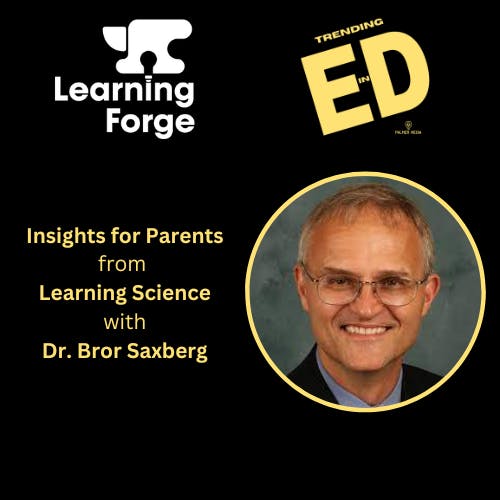



we have come out with the best test banks that are designed to help you prepare for your important exams and enjoy the best scores. At etestbank, we have curated an exceptional range of test banks that you won’t find anywhere else. Contact us: https://etestbank.net/
We help students with all the help they need. We also complete the assignments within the given deadline and ensure that the assignment is of the highest quality. We provide you with the assignment well before time. So if you want us to make any changes in them, we are able to do that as well. Our main goal is to help the students get good marks in their examination and at the same time not get too tensed about it. So if you are stuck with your homework and need help then do get in touch with us at universityhomeworkhelp.com. We have experts working with us. They will be able to provide you with all the help you need. Get in touch with us at https://universityhomeworkhelp.com/
With us students can strip off the burden of homework, here each assignment is well taken care of by respective subject expertise. After all, learning is an enjoyable experience; one must not look upon it as a dull work. We provide customized homework solutions on subjects like Business plan, accounting, English, computer science, mathematics, finance, physics, civil engineering, chemical engineering, economics, biology, mechanical engineering, chemistry, statistics, management and electrical engineering. Don’t keep a second thought on dropping your query if your subject is missing from the list. Visit: https://www.domyhomework.co/
https://www.sevenmentor.com/ I am glad to see this brilliant post. all the details are very helpful and good for us, keep up to good work.I found some useful information in your blog, it was awesome to read, thanks for sharing this great content to my vision, keep sharing.
Mike, thanks for having me on! I really enjoyed chatting with you!